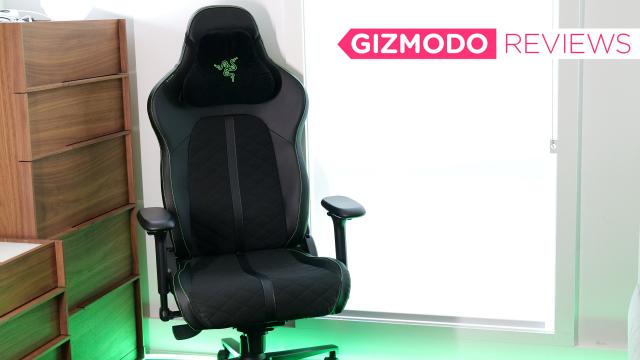A few months ago, I made a mistake. After years of faithful service, including 18 months of quarantine in which it was used 8-12 hours per day, the seat of my faithful office chair disintegrated. The new chair I bought to replace my previous one is about as comfortable as sitting in the bed of a truck, to the point where it instantly became a pain in my arse. So when Razer asked if I wanted to test out its new Enki chair, I was willing to try anything. And despite my prior misgivings about gaming chairs, the Razer Enki proved its worth. I am a gaming chair believer.
Razer Enki
What is it?
A gaming (or work) chair designed for all-day comfort
Price
$US399 for the Enki, $US299 for the Enki X
Like
Supportive and comfortable, straightforward assembly, great price, very adjustable, diamond-stitched cushions
Don't Like
Overly gamery aesthetic, limited colour options, headrest pillow is a bit fiddly
How This Gaming Chair Won Me Over
My scepticism for gaming chairs is more like a long-held grudge. In theory, I should be the perfect customer for seating designed to provide comfort and support over long periods, either writing or binge gaming at night or on the weekend. But after trying out hundreds of different gaming chairs over the years at tech trade shows like CES, I came to the conclusion that the vast majority of gaming chairs were poorly made from low-quality materials, with not much consideration for design — aside from trying to attract the kind of people who participate in Mountain Dew and Doritos contests to get free swag. And this is coming from someone who likes RGB lighting.
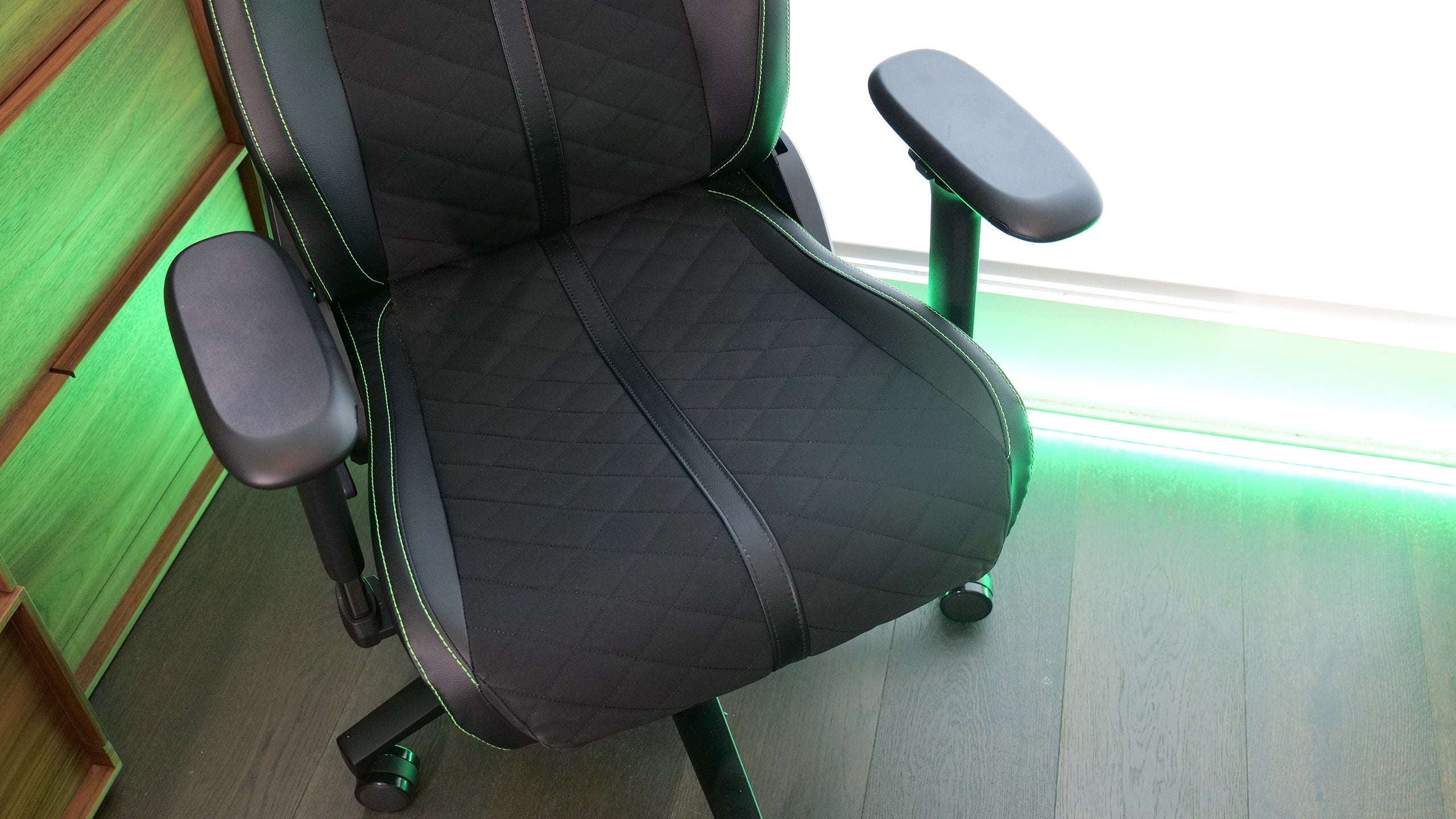
I even overlooked Razer’s first gaming chair, the Razer Iskur, because it was designed specifically for people who need extra lumbar support, and while my lower back could use some help, I don’t think my body has degenerated that much yet (at least I hope). But with the Enki and Enki X (a more affordable version with less adjustable armrests, a slightly different hinge, and no bonus head pillow), Razer is shooting for all-day comfort for all body types and sizes, and to my surprise, the Enki definitely delivers — all for a great price that starts at just $US299 ($399) (or $US399 ($533) for all the bells and whistles).
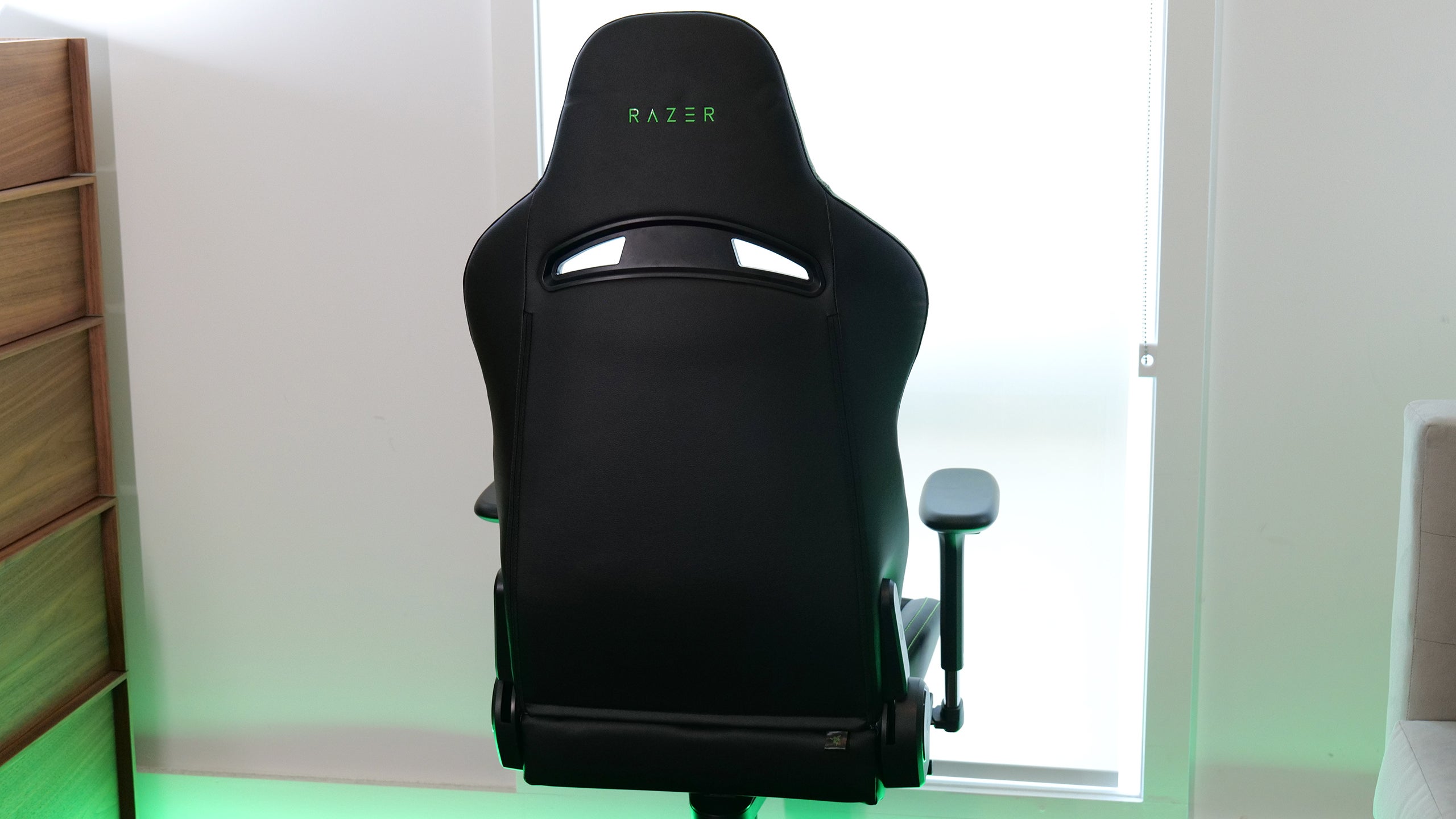
Coming from my previous abomination of a chair, the biggest immediate upgrade on the Enki was its seat, which is made from slightly softer padding than what Razer uses in the backrest to prevent your butt from getting sore. Razer says it designed the seat for optimal weight distribution. During development, the company created pressure maps for various testers to ensure there weren’t any spots causing undue stress. The Enki was also designed to let people sit comfortably cross-legged, which isn’t something I do, but my wife does, and she had no problems curling up in the Enki.

The Enki’s backrest doesn’t come with a special lumbar pillow like you get with the Iskur, but between the curve of the chair and the sculpted padding, I never felt like I lacked for support. But my favourite aspect of the Enki might be its wide 110-degree shoulder arch, which cradles your upper back without feeling tight or restrictive — for reference, I’m 1.83 m tall and weigh about 220 (or at least I did before the pandemic threw my eating habits and workout routine all out of wack).
The Enki offers ample adjustability thanks to its 4D armrests that can move up and down, left and right, and swivel, while the backrest can be locked in place or set to recline gently when you lean back. And if you want to tilt back, there’s also a recline lever that allows the Enki to lay back up to 152 degrees. (Note: the Enki x has 2D armrests that only go up and down, and doesn’t have the resistive reclining feature). And while I doubt this was intended, I even used Enki’s resistive recline feature to rock my newborn son to sleep, which was a very welcome bonus.

I ended up not using it because I generally don’t need neck support when I’m sitting at my desk, but the Enki (but not the Enki X) comes with a detachable head pillow in case you’re the kind of person that likes to doze in your gaming chair. It’s made out of really soft memory foam and covered in a velvety microfiber fabric. But I just found that no matter how I positioned it, I felt like it was pushing my head too far forward for comfort.
A Little Too Gamer
Honestly, my major gripes about the Enki aren’t related to the chair’s design, but more with its aesthetics and how Razer is positioning the chair toward its intended audience. I bought my travesty of a fancier-looking office chair in large part for its design, which is clean, modern, and relatively minimalist. I never considered that a designer could be so dense that they would forgo the minimum amount of padding needed to prevent a desk chair from feeling like an unforgiving wooden bench.
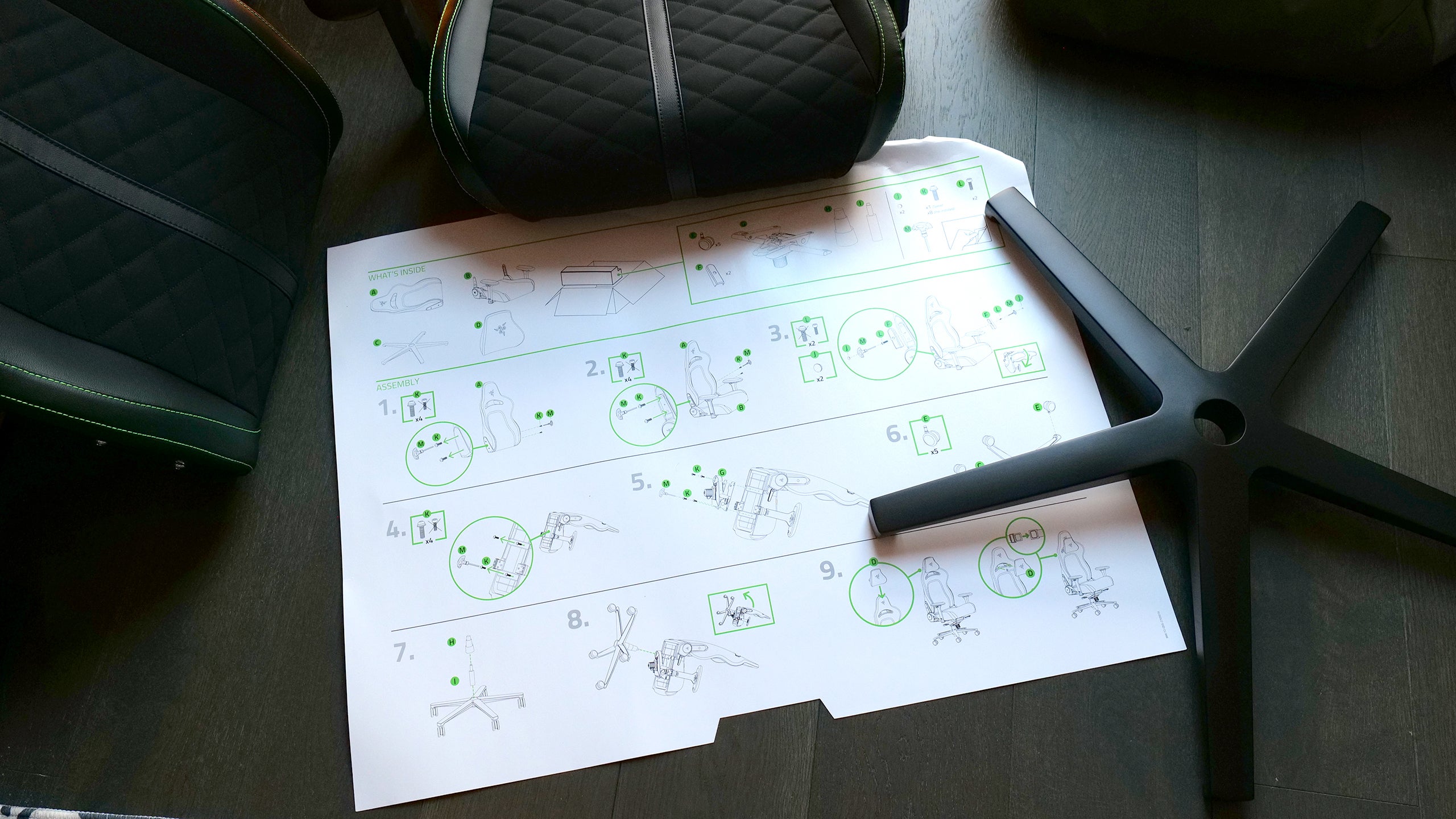
My issue with gaming chairs, including the Enki, is that they still look like aftermarket racing seats from the Fast and the Furious, which doesn’t really go with any of the other furniture in my home. Don’t get me wrong, it looks fine if you’re in a dim room filled with lots of RGB lighting, but how many of us are actually full-time Twitch streamers? I find the green stitching on my Enki review unit to be a particular eyesore, and while there is an all-black model, that doesn’t change the equation very much. The diamond-stitched padding is nice, though, and Razer shouldn’t get rid of that.
Razer has already expanded beyond gaming into general productivity products with the Razer Book and its line of Productivity Suite peripherals, so I really wish the company had tried to make the Enki more of a general-purpose office chair, with some less gamery colour options like light grey or white — maybe even a light sage instead of neon ectocooler green. Post-launch, Razer made a grey version of the Iskur, so I was disappointed to see that the Enki didn’t get a similar treatment. Designating the Enki as a gamer chair is kind of disservice, because even if you’re not a gamer, this thing is worth considering.
Great Comfort, Affordable Price
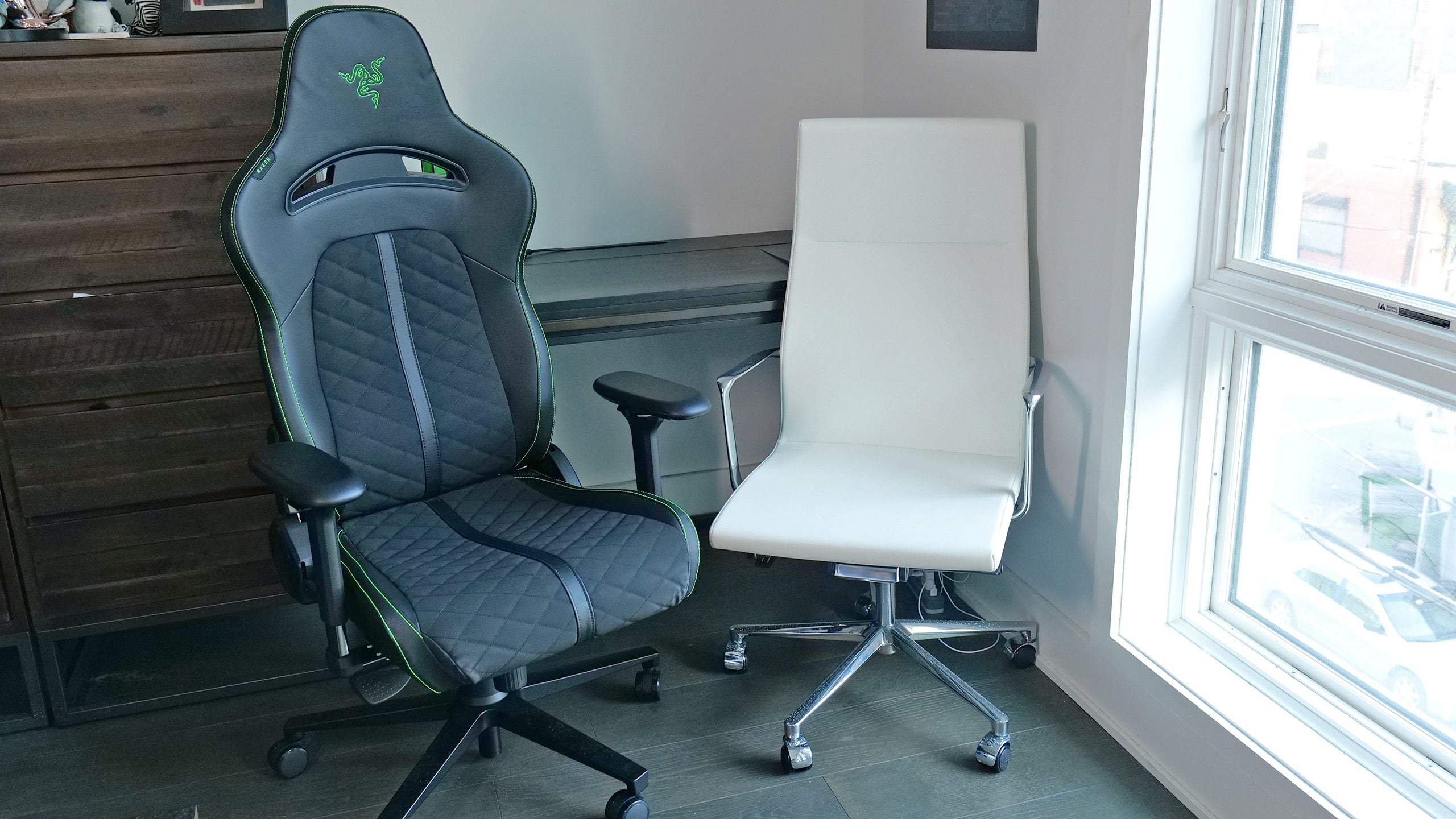
The Enki is just a really comfortable chair for a great price, regardless of looks or its intended demographic. When people used to ask me what type of desk chair they should buy, my typical response would be to find a used office chair from one of the big names like Herman Miller or Steelcase (a new one would be even better, but it’s hard to drop $1000 on a chair regardless of how nice it is).
But with a starting price of $US299 ($399) for the Enki X and $US399 ($533) for the Enki, Razer’s general-purpose gaming chair more affordable than a used fancy office chair and provides a great alternative to anyone who doesn’t want to buy a previously-owned piece of furniture, which I totally get (especially for something you spend as much time in as an office chair). I’m still opposed to low-quality gaming chairs, but Razer has broken through with the Enki and created a fantastic chair that can keep your back and butt happy, regardless of how long you sit in it.
Editor’s Note: Prices within this article are based in the U.S., but will be updated with local pricing and availability as soon as we know more.
